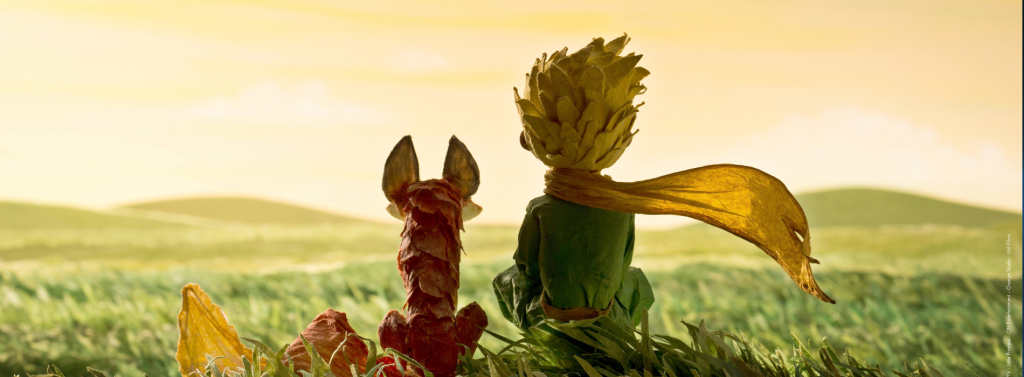
All grown-ups were once children… but only few of them remember it.
Antoine de Saint-Exupéry, The Little Prince
In reminiscing childhood, the saying that “ignorance is bliss” may be an astute phrase. As a child, we were inundated with new experiences, in which our adult lives may now know these experiences to be mundane. The bubble of childhood used to insulate us from the worries of the world, but now, the simplicities of life, become commonplace. The threat of war, the rising of petrol prices, even the imminence of climate change, did not concern our young minds.
The global financial crisis of 2008 – the most serious financial crisis since the Great Depression in the 1920s, was unknown to me as a child. Instead, what plagued my mind was the concern of the next program on Cartoon Network, or thinking about how to level up my Pokémon to lvl.100 the quickest or how to catch Latios, a legendary Pokémon. In this, demonstrates the fact that from childhood to adulthood, a radically profound development has occurred, resulting in fundamentally different priorities and goals. And the bridge to this, are the teenage years that progress us to maturity.

This begs the question – what is maturity? How does this process happen? Is maturity a good or a bad thing, and can we retain our childhood selves whilst we mature to adulthood?
Wikipedia defines maturity in this (rather convoluted) way:
“Maturity can be operationally defined as the level of psychological functioning one can attain, after which the level of psychological functioning no longer increases much with age. However, beyond this, integration is also an aspect of maturation, such as the integration of personality, where the behavioral patterns, motives and other traits of a person are gradually brought together, to work together effectively with little to no conflict between them, as an organized whole, e.g., bringing a person’s various motives together into a purpose in life. Case in point: adult development and maturity theories include the purpose in life concept, in which maturity emphasizes a clear comprehension of life’s purpose, directedness, and intentionality, which contributes to the feeling that life is meaningful.”
Wikipedia
What may be obvious is the separation between physical and emotional maturity. Physiologically, we know that the transition from childhood to adulthood starts with the onset of puberty. Hormones such as oestrogen and testosterone are elevated, and our bodies start taking on their adult forms at roughly the same time, in which girls tend to mature first before boys do.
Emotional maturity, on the other hand, is not inevitable like physical maturity and is not so clear-cut. We’ve all seen people that we’ve met that are mature beyond their years, as well as those that may be in adulthood, but are seemingly immature in their conduct.
In The School of Life’s video titled “How to Test Your Emotional Maturity” by Alain de Botton, De Botton gives a diagnostic test for emotional maturity:
“When someone on whom we depend emotionally lets us down, disappoints us, or leaves us hanging or uncertain, what is our characteristic way of responding?”
De Botton lists 3 immature behaviours – sulking, becoming furious, or that we become cold. In other words, these are reactionary responses to the situation. In contrast, what is deemed mature requires mental fortitude to not succumb to the situation, with De Botton noting that mature individuals have the capacity to explain their distress, be able to stay calm, as well as possess the capability to be vulnerable as the heated situation plays out.
In this, maturity appears to be a refining process – that as we move into adulthood, we also grow into maturity. Yet, the danger lies in this very process of maturity, that we may forget our childhood selves. In growing into responsibility, we can become too dutiful that we forget to have fun. In growing in knowledge, we can become too fixated on collecting accolades that we selfishly forget to help our fellow neighbour in our studies. In growing to make money to put food on the table, we can become too obsessed with owning the whole world that we forget that we will one day pass away.
The simplicity of childhood is a beautiful thing. Let us not forget it, lest we lose what it means to be truly human.
“Grown-ups love figures… When you tell them you’ve made a new friend they never ask you any questions about essential matters. They never say to you “What does his voice sound like? What games does he love best? Does he collect butterflies? ” Instead they demand “How old is he? How much does he weigh? How much money does his father make? ” Only from these figures do they think they have learned anything about him.”
Antoine de Saint-Exupéry, The Little Prince


Sam H
Very interesting thoughts Bryan, thank you!
The big thing this highlighted for me is how the Bible somehow sees both childhood and maturity as things to strive for — on the one hand it tells us to put away childish things, move on to spiritual meat, and attain maturity (ie “grow up” to be more like Jesus); but at the same time it tells us to become like children and approach God with child-like adoration and dependence.
I think your idea of maturity as a refining process helps make sense of this tension. I was a pretty self-absorbed, emotionally unbalanced child, so I look back on my childhood self with mostly negative feelings. And unsurprisingly, as I see the Holy Spirit at work in my life—convicting me of sin, showing me more of Jesus— there are very important ways in which I feel I resemble that child less and less every day. But counter to this very straightforward view of maturity, sometimes I notice (positive) ways in which I’ve become *more* like my childhood self — eg. through learning to cling to God as a Father in scary times, and in other simple joys that I hadn’t experienced since I was quite young.
This idea of sanctification as a refining process reminds me of 1 Corinthians 15:36 (and also Lewis’ reflections on this motif) that “what you sow does not come to life unless it dies.” The goodness we see in children is a dim reflection of the goodness we’ll see in the redeemed, resurrected humanity God is building. We are not buried with Christ and then re-created (ie. not resembling our former selves in *any* way); we are buried with Christ and *raised up* to walk in newness of life with (eventually) all the purity of childhood and all the glory of maturity in Jesus.
Hope some of this is vaguely useful lol, thanks again for the thought-provoking article!
Blessings,
Sam
Bryan
Hey Sam, your deeply thoughtful comment made my day 🙂 What you’ve said is definitely very useful, where a lot of things you’ve said I’ve never realised before! That 1 Corinthians 15:36 verse is indeed deeply fascinating, the fact that we have to die to our old self and be raised up in the newness of life really is mindblowing. What you’ve said also brings to mind this verse – “but Jesus said, ‘Let the little children come to me and do not hinder them, for to such belongs the kingdom of heaven'” – Matthew 19:14 ESV. Not that literal children exclusively belong to the kingdom of heaven, but referring to those that possess childlike faith. Appreciate it, Sam!